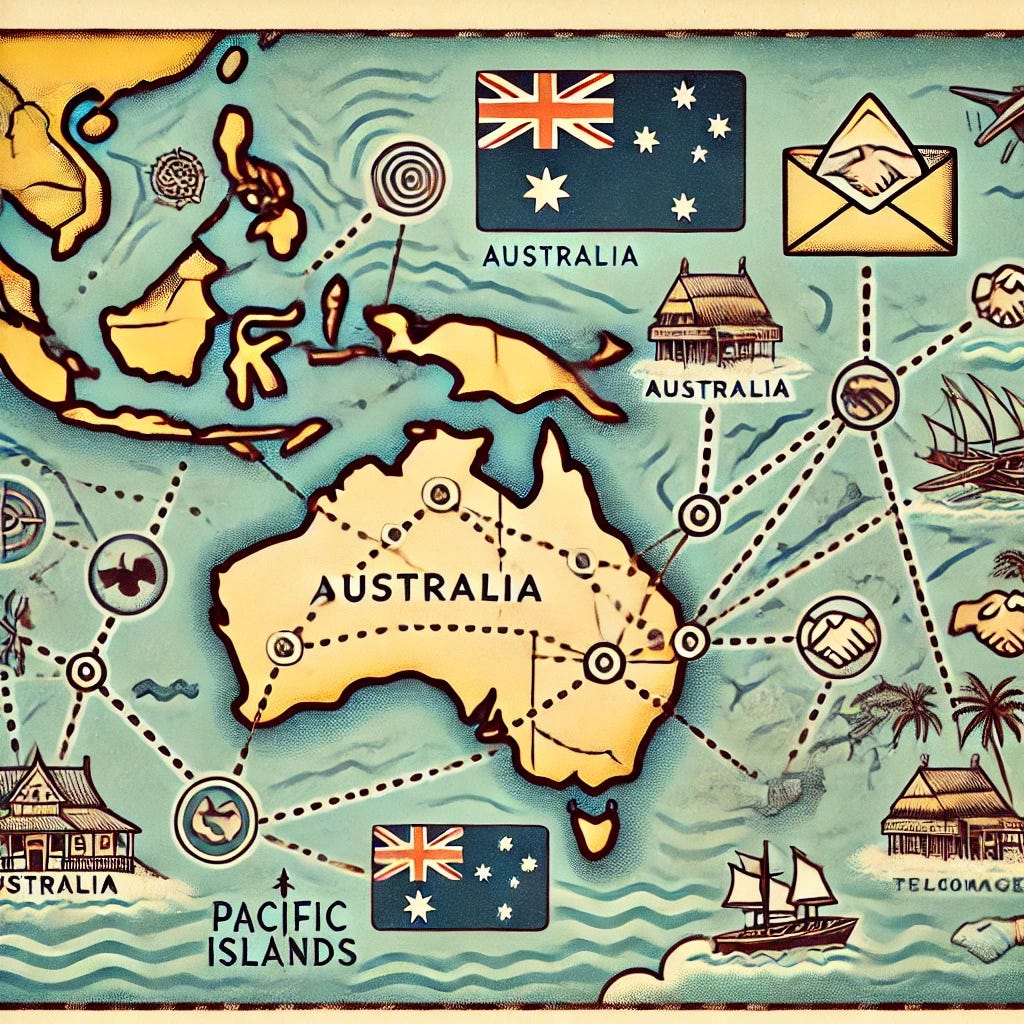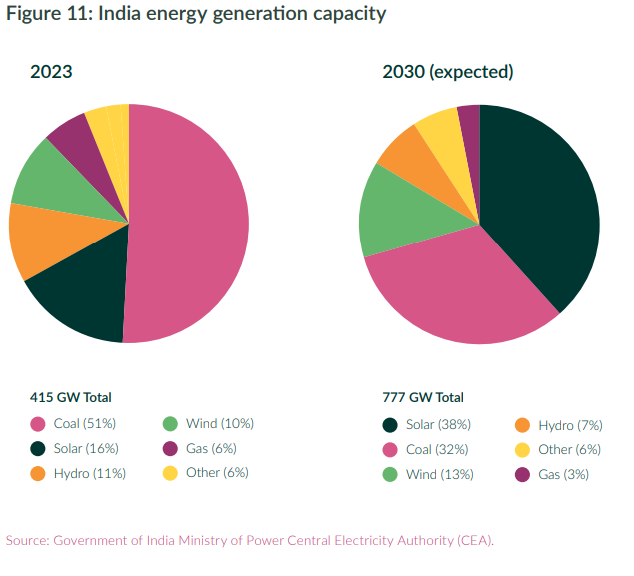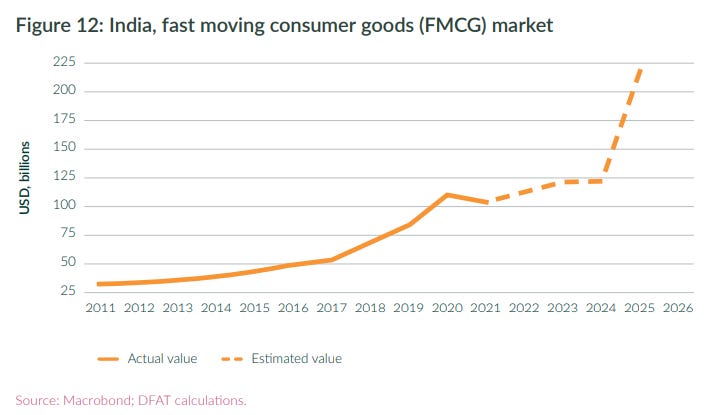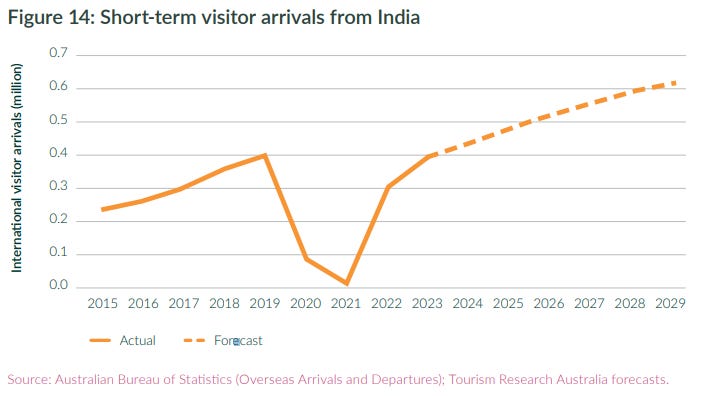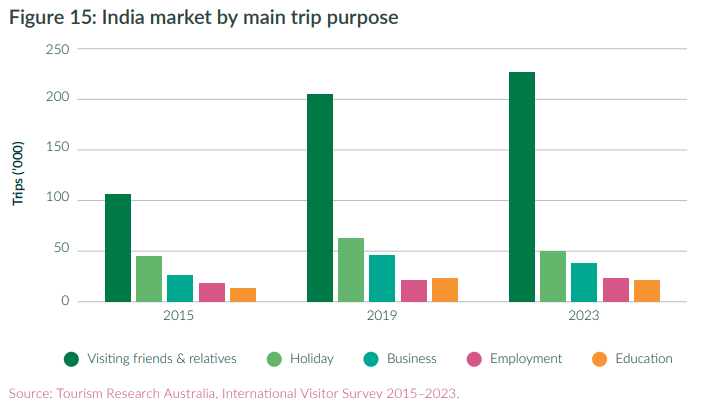Australia’s Emerging Hub-and-Spokes System in the Pacific
Australia-Papua New Guinea Security Treaty; Australia-India Economic Ties; Article Roundup
Hub Story: Australia-Papua New Guinea Security Treaty
Spoke Story: Australia-India Economic Ties
Alliance Insights: Key Articles This Week
Hub Story: Australia’s Emerging Hub-and-Spokes System in the Pacific
Australia and Papua New Guinea (PNG) are negotiating a security treaty to strengthen their security relationship, marking the most significant defense agreement between the two countries since PNG’s independence. The treaty is expected to cover military, police, cyber, and climate security, and may include provisions to prevent PNG from entering defense agreements with countries like China. This agreement follows similar moves by the U.S., which signed a deal with PNG last year, highlighting the growing competition for influence in the Pacific region amid shifting security dynamics. Australia’s new security treaty with Papua New Guinea mirrors similar agreements with Nauru and Tuvalu, marking a strategic shift for Australia. While not mutual defense treaties like those between the US and Australia or the US and Japan, these agreements reflect Australia’s adaptation of the US-led hub-and-spokes system that emerged in Asia after World War II. These bilateral arrangements enhance Australia’s influence and commitment to regional security, particularly in countering China’s growing presence.
Canberra has been courting deeper PNG security cooperation for a few years. On 7 December 2023, Prime Ministers Anthony Albanese and James Marape signed the Bilateral Security Agreement.
The initiatives, to be delivered under Australia and Papua New Guinea's Bilateral Security Agreement, include:
support for PNG's legal system to help PNG investigate and prosecute financial crime;
investments in programs to improve access to justice for young people and remote and regional communities;
support to make PNG's correctional facilities safer and more secure.
We will deliver additional support for stability in the PNG Highlands, including a new program to help PNG improve weapons management and a partnership with the International Committee of the Red Cross…
These initiatives will be funded from the $200 million committed by Australia to support PNG's internal security priorities through our landmark Bilateral Security Agreement, announced by Prime Ministers Albanese and Marape in December 2023.
In recent months, we have made progress on delivering on our ambitions for our bilateral security partnership, including through:
commencement of construction on new police housing in Port Moresby and Mount Hagen;
additional Australian Federal Police support to the Royal Papua New Guinea Constabulary (RPNGC) on recruitment, training and forensics;
RPNGC Officer Cadet placements in the Queensland Police Service in Far North Queensland;
a new Police Patrol Vessel to enable the RPNGC to conduct long-range patrols of sea borders.
In addition, our flagship Australia-PNG Law and Justice partnership is expanding from five to seven PNG provinces and regions, strengthening service delivery and access to justice for Papua New Guineans.
In addition to defense and security cooperation, Australia has increased development cooperation. PNG is Australia's largest development partner, with an estimated $637.4 million in Official Development Assistance funding (2024-25), an expanding program of blended finance (loans and grants) for infrastructure development under the Australian Infrastructure Financing Facility for the Pacific, and $2.56 billion in budget support loans since 2019 (non-ODA), linked to fiscal repair and economic reform.
Australia’s – Papua New Guinea Development Partnership Plan 2024 – 2029:
Objective 1: Building an Economic Partnership for Prosperity
Objective 2: Promoting Improved Law, Order and Governance
Objective 3: Investing in People and Building Resilient Communities
Objective 4: Building Close Friendships and Enduring Ties
The new Australia-PNG defense treaty is unlikely to include a NATO-style Article 5 mutual defense clause. However, it is expected to feature an exclusionary clause, granting Australia the legal right to veto PNG from entering any other security or strategic agreements, such as with China. This treaty is part of Australia’s expanding security framework, with similar agreements already in place with Nauru and Tuvalu, reflecting Australia's efforts to strengthen its influence and ensure strategic alignment in the Pacific region.
In August 2024, a security treaty between Tuvalu and Australia came into effect, focusing on three key areas: climate cooperation, dignified mobility, and shared security. This agreement highlights Australia’s strategy to strengthen its security architecture in response to China’s growing assertiveness and the increasing unpredictability of the United States. The treaty not only commits Australia to provide support to Tuvalu in times of crisis but also grants Australia the power to veto any Chinese attempts to establish a security arrangement with Tuvalu. The same arrangement that will most likely develop between Australia and PNG.
Australian Government: Media Release:
From today, and for the first time ever, Australia is obliged to respond when Tuvalu calls for assistance in the face of a major natural disaster, health pandemic or military aggression. Tuvalu, in turn, will mutually agree any new third-party engagement on defence and security-related matters with Australia.
Similar to Tuvalu, Australia and Nauru signed the Nauru–Australia Treaty in December 2024, elevating their relationship to an integrated economic, social, and security partnership. Under the Treaty, Australia will provide $100 million over five years to strengthen Nauru’s economic resilience and ensure continued access to banking services, with the Commonwealth Bank of Australia set to commence operations in 2025. Additionally, Australia commits $40 million to support Nauru’s policing and security, with both nations agreeing to consult on security matters and restrict third-party involvement in critical infrastructure.
Australian Government: Joint Statement on Nauru-Australia Treaty:
To underpin this commitment, both countries will mutually agree on any engagement by others in Nauru’s security and key critical infrastructure sectors and have agreed that critical infrastructure shall not be used by any third party for security purposes. This reflects our understanding that as Pacific countries our interests are intertwined and decisions taken by one can affect the interests of the other.
As Australia and Papua New Guinea (PNG) negotiate their security treaty, it is likely to follow a similar structure to the agreements with Tuvalu and Nauru. Under the treaty, Australia could provide development, infrastructure, security, and economic aid, while PNG would designate Australia as its security guarantor of choice and effectively exclude China from entering any security arrangements. This approach reflects Australia’s broader strategy to solidify its influence in the Pacific region amid increasing competition from China.
As the Trump Administration develops its strategies for the Indo-Pacific, it should seek ways to support Australia’s diplomatic outreach. Canberra has established deep and enduring relationships with many Pacific Island nations, connections that Washington lacks. While the United States must continue to engage with Pacific Island partners independently, augmenting Australian initiatives would be a net positive for American security, strengthening the broader regional alliance system and countering rising geopolitical challenges.
Spoke Story: Australia Seeks Deeper Economic Ties with India
Australia has unveiled an ambitious roadmap to strengthen trade and investment ties with India, focusing on clean energy, education, agribusiness, and tourism, with a USD 16 million investment in a Trade and Investment Accelerator Fund. The plan aims to boost bilateral economic cooperation, create job opportunities, and enhance cultural links. With a free trade agreement already saving Australian businesses USD 2 billion in tariffs, this initiative is poised to unlock further commercial opportunities in India’s rapidly growing market.
At the foundation’s Australia’s plan, titled “A New Roadmap for Australia’s Economic Engagement with India,” is the growing strategic alignment between Canberra and New Delhi.
A New Roadmap for Australia’s Economic Engagement with India:
India’s economic rise is also happening just as our geostrategic environment becomes more volatile. Our strategic interests are converging with India’s. This is becoming central to the way we engage each other. Our growing geopolitical alignment supports our economic partnership. We signed a Comprehensive Strategic Partnership in 2020. We are members of the Quad, the G20 and the Commonwealth. Our prime ministers meet each year. We are both working hard toward our shared vision for a peaceful, stable and prosperous Indo-Pacific. As neighbours, we see our neighbourhood – our region – in the same way. We share many of the same goals, and we are both focused on what needs to be done. This Roadmap outlines how the Government intends to seize the opportunity that our relationship with India presents.
Australia’s roadmap outlines four key areas for enhancing economic engagement with India: clean energy, education and skills, agribusiness, and tourism, with specific action plans developed for each sector to strengthen bilateral ties and promote mutual growth.
CLEAN ENERGY
India’s energy transition presents a significant opportunity for Australian businesses, particularly in sectors like solar, hydrogen, electric vehicles, and green steel. As India’s energy consumption grows, especially in clean energy, the country aims to become a key player in the global shift to renewables, providing a natural platform for collaboration with Australia. Both nations have aligned goals, with Australia’s Future Made in Australia plan and India’s Make in India initiative driving clean energy development and critical minerals production. The India-Australia Renewable Energy Partnership, launched in November 2024, focuses on key areas like solar photovoltaics, renewable hydrogen, and energy storage, positioning both countries to lead in the clean energy supply chain.
Clean Energy Action Plan:
India-Australia Renewable Energy Partnership (REP)
India-Australia Green Steel Partnership
India-Australia Critical Minerals Research Partnership
Australia-India Critical Minerals Investment Partnership
Australia-India CEO Forum
India-Australia Rapid Innovation and Startup Expansion (RISE) Accelerator
India-Australia Minerals Scholar Network
International Hydrogen RD&D Collaboration Program
Quad Climate Working Group
Quad Clean Energy Supply Chain Diversification Program
EDUCATION AND SKILLS
India’s large and growing youth population presents significant opportunities for Australia in education and skills development. As India expands its economy, particularly in sectors like electric vehicles, IT, and manufacturing, Australian universities and vocational training providers are increasingly partnering with Indian institutions to offer dual degrees and skills training programs. Notable initiatives, such as Australian universities establishing campuses in India and mutual recognition of qualifications, are strengthening educational ties and creating pathways for students and professionals between the two countries. These educational collaborations support both nations' economic ambitions and foster long-term cooperation across sectors like green energy, mining, and agriculture.
Education and Skills Action Plan:
Maitri Scholarships Program
Maitri Fellowships Program
Maitri Grants
Mobility Arrangement for Talented Early-professionals Scheme (MATES)
Encourage further transnational education (TNE) investment
Mapping Vocational Education and Training qualifications and/or occupational standards
AGRIBUSINESS
India's growing middle class and changing food preferences present significant opportunities for Australian agribusinesses, particularly in premium products like wine, seafood, and lamb. The Economic Cooperation and Trade Agreement (ECTA) has already boosted exports, such as sheep meat and almonds, and facilitated better market access for Australian produce, with Australian wine benefitting from reduced tariffs. While market access remains a long-term challenge due to India's protected agricultural sector, Australia's expertise in agritech, including water management and grain storage, positions it well to assist India in enhancing productivity and food security, creating lasting trade relationships.
Agribusiness Action Plan:
Seek improved agricultural market access to India through the Comprehensive Economic Cooperation Agreement (CECA)
Showcasing Australian produce at government-hosted events, and through promotion on social media
TOURISM
India's growing consumer class and rising purchasing power are driving a surge in outbound travel, with 50 million Indians projected to travel abroad by 2030, making India the fastest-growing outbound market. Australia is a top destination for Indian tourists, with increasing arrivals driven by the large Indian diaspora, cultural ties, and Australia’s appealing tourist experiences. Flight connectivity improvements, such as the Open Skies Agreement and the expansion of direct flights, are expected to further boost tourism, while Tourism Australia continues to engage the Indian market through events and industry collaborations, aiming for 1.2 million Indian visitors by 2035.
Tourism Action Plan:
encourage additional direct flights
Promote Australia as a tourist destination
Investigate regional dispersal initiatives
build and establish business relationships
Collaborate with key distribution and airline partners
Alliance Insights: Key Article This Week
Australia:
ABC: Coalition pledges $3 billion to acquire extra joint strike fighter jets
Ministry of Foreign Affairs: Australia in the World - 2025 Snapshot
Japan:
South Korea:
Yonhap News Agency: S. Korea joins NATO science and technology body partnership
Yonhap News Agency: S. Korea, U.S. Marines stage joint reconnaissance drills
Yonhap News Agency: Navy's new fleet command holds 1st major maritime drills
India:
Pacific Islands:


